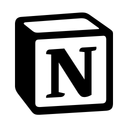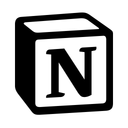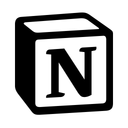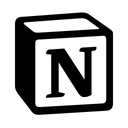Jira vs Notion (2025 Comparison)

Jira is a powerful project management tool designed for software development teams. With highly customizable workflows and advanced reporting features, it enhances productivity and streamlines project management.
- Highly customizable workflows
- Advanced reporting features
- Strong integration capabilities
- Steep learning curve
- Complex interface for beginners
Free plan?
YesStarting price
Contact sales
Notion is a versatile productivity tool that combines note-taking, task management, and collaboration features. Its intuitive interface and excellent collaboration tools make it ideal for individuals and small teams.
- Intuitive interface
- Versatile use cases
- Excellent collaboration tools
- Limited agile features
- Basic reporting capabilities
Free plan?
YesStarting price
$10 per month per userWhat is Jira?
Jira is a powerful project management tool designed to help teams plan, track, and manage their work efficiently. It offers a range of features such as customizable workflows, agile boards, and detailed reporting, making it ideal for software development teams. With Jira, you can easily prioritize tasks, collaborate with team members, and ensure projects are delivered on time. Its integration capabilities with other tools further enhance productivity, making it a go-to solution for many organizations.
What is Notion?
Notion is a versatile productivity tool that combines note-taking, task management, and collaboration features into one platform. It allows users to create customized workspaces, organize information, and collaborate seamlessly with team members. Notion's flexibility makes it suitable for a wide range of use cases, from personal organization to team project management. Its intuitive interface and powerful features help users streamline their workflows and improve productivity in their daily lives.
Pros and Cons of Jira vs Notion

Pros & Cons of Jira
- Jira offers highly customizable workflows that allow teams to tailor their processes to fit their specific needs. This flexibility is particularly beneficial for software development teams that require unique workflows.
- Jira provides advanced reporting features that are invaluable for teams needing detailed insights into their projects. These reports help teams track progress, identify bottlenecks, and make data-driven decisions.
- Jira offers a wide range of integrations with other tools, making it easy to connect with your existing software ecosystem. This enhances productivity and streamlines workflows.
- Jira can be complex for new users due to its extensive features and customization options, which may require a learning curve. This can be challenging for teams new to project management tools.
- Jira's interface can feel overwhelming for beginners, especially those unfamiliar with project management software. This complexity may hinder initial adoption and require additional training.

Pros & Cons of Notion
- Notion is known for its intuitive interface and user-friendly design, making it easier for users to get started and navigate the platform. This simplicity enhances user experience and adoption.
- Notion offers a versatile set of features that cater to various use cases, from note-taking to project management. Its flexibility makes it suitable for a wide range of users and teams.
- Notion shines in collaboration, offering real-time editing and sharing features that make it easy for teams to work together. Its all-in-one workspace approach fosters collaboration across different projects.
- Notion offers basic task management features, but its agile capabilities are not as advanced as Jira's. This may be a limitation for teams following agile methodologies.
- Notion offers basic reporting capabilities, but they are not as comprehensive as Jira's. This may be a limitation for teams needing detailed insights into their projects.
Jira vs Notion: At A Glance
Value to Price
Jira offers a robust set of features that justify its pricing, especially for teams focused on software development. Its extensive customization options and integration capabilities provide excellent value. Notion, on the other hand, offers a more affordable solution with a wide range of functionalities, making it a great choice for individuals and small teams looking for a cost-effective productivity tool.
Ease of Use
Jira can be complex for new users due to its extensive features and customization options, which may require a learning curve. Notion, however, is known for its intuitive interface and user-friendly design, making it easier for users to get started and navigate the platform. If you prioritize ease of use, Notion might be the better choice.
Functionality
Jira excels in providing advanced project management features tailored for software development teams, such as agile boards and detailed reporting. Notion offers a versatile set of features that cater to various use cases, from note-taking to project management. If you need specialized project management tools, Jira is the way to go, but for a more general-purpose tool, Notion is ideal.
Scalability
Jira is designed to scale with your team, offering features that support large organizations and complex projects. Notion also scales well, but its strength lies in its flexibility and adaptability for smaller teams and individual users. If you anticipate significant growth, Jira might be the better option.
Integrations
Jira offers a wide range of integrations with other tools, making it easy to connect with your existing software ecosystem. Notion also provides integration capabilities, but its focus is more on creating a seamless all-in-one workspace. If integrations are a priority, Jira offers more options.
Customer Support
Jira provides comprehensive customer support, including detailed documentation and community forums. Notion also offers support, but its resources may not be as extensive as Jira's. If you require robust support, Jira might be the better choice.
Security
Jira prioritizes security with features like data encryption and compliance with industry standards. Notion also offers security measures, but Jira's focus on enterprise-level security makes it a preferred choice for larger organizations. If security is a top concern, Jira is the safer bet.
Overall Rating
Jira is a powerful tool for project management, especially for software development teams, offering a wide range of features and integrations. Notion, with its versatility and ease of use, is ideal for individuals and small teams looking for a flexible productivity tool. Your choice depends on your specific needs and priorities.
Jira vs Notion: A Detailed Breakdown of Key Features
Customizable Workflows
Jira's customizable workflows are a standout feature, allowing teams to tailor their processes to fit their specific needs. This flexibility is particularly beneficial for software development teams that require unique workflows. Notion also offers customization, but its focus is more on creating flexible workspaces rather than specific workflows. If you need highly customizable workflows, Jira is the better choice.
Agile Boards
Jira excels in providing agile boards that are essential for teams following agile methodologies. These boards help teams visualize their work, track progress, and manage tasks efficiently. Notion offers basic task management features, but its agile capabilities are not as advanced as Jira's. If agile project management is a priority, Jira is the preferred tool.
Note-taking
Notion is renowned for its note-taking capabilities, offering a seamless experience for users to capture and organize information. Its intuitive interface and rich text editing features make it a top choice for note-taking. Jira, while offering basic note-taking features, is not as focused on this aspect. If note-taking is a key requirement, Notion is the superior option.
Task Management
Both Jira and Notion offer robust task management features, but they cater to different needs. Jira's task management is geared towards software development teams, with features like issue tracking and sprint planning. Notion provides a more general task management experience, suitable for a wide range of use cases. If you need specialized task management for development, Jira is ideal, but for general use, Notion is excellent.
Collaboration
Notion shines in collaboration, offering real-time editing and sharing features that make it easy for teams to work together. Its all-in-one workspace approach fosters collaboration across different projects. Jira also supports collaboration, but its focus is more on project management. If collaboration is a top priority, Notion is the better choice.
Reporting
Jira provides advanced reporting features that are invaluable for teams needing detailed insights into their projects. These reports help teams track progress, identify bottlenecks, and make data-driven decisions. Notion offers basic reporting capabilities, but they are not as comprehensive as Jira's. If reporting is crucial, Jira is the preferred tool.
Pricing Comparison of Jira and Notion
To assist you in making an informed choice, we’ve outlined the pricing plans and essential features of Jira and Notion. This comparison will highlight the best option for managing your projects.

Jira Pricing Plans
- Unlimited issues to track and resolve tasks seamlessly.
- Unlimited projects to organize and manage work efficiently.
- Customizable workflows to tailor processes to team needs.
- Project templates for quick and easy project setup.
- 250 GB file storage for extensive data management.
- Unlimited email notifications to keep teams informed.
- Local business hours support for timely assistance.
- Single project dependency management for streamlined workflows.
- 24/7 premium support for continuous assistance.
- Cross-project dependency management for complex projects.
- 1,000 rule runs per user per month for extensive automation.
- 99.9% guaranteed uptime SLA for reliable performance.
- Unlimited automation for streamlined processes.
- 99.95% guaranteed uptime SLA for mission-critical operations.
- Advanced security features including Atlassian Guard.
- 24/7 enterprise support for dedicated assistance.

Notion Pricing Plans
- Collaborate with friends, family & colleagues on your pages.
- Basic page analytics to track interactions.
- Restore your page to a previous version with 7-day history.
- Invite up to 10 guests to collaborate.
- Unlimited file uploads for seamless data management.
- 30-day page history for better version control.
- Invite up to 100 guests for broader collaboration.
- Custom websites with Google Analytics integration.
- Private teamspaces for sensitive information.
- Bulk PDF export for legal or compliance backups.
- Advanced page analytics for detailed insights.
- Invite up to 250 guests for extensive collaboration.
- Advanced security & controls for enhanced protection.
- Audit log for tracking security-related activities.
- Customer success manager for expert guidance.
- Unlimited page history for comprehensive version tracking.
Our Rating Methodology
We thoroughly test each project management tool, evaluating key features like ease of use, functionality, and scalability. We also analyze user reviews to ensure our recommendations fit your needs. Each of the seven evaluation factors is weighted by importance to provide an accurate final rating, helping you avoid poor-quality tools and make informed decisions.
Jira or Notion: Which One Matches Your Business Needs?
Choose Jira If You Need ...
- Advanced project management features
If you are a software development team looking for a tool with advanced project management features, Jira is the ideal choice. Its customizable workflows, agile boards, and detailed reporting make it perfect for managing complex projects.
- Strong integration capabilities
If you need a tool that can seamlessly integrate with your existing software ecosystem, Jira is the better option. Its wide range of integrations enhances productivity and streamlines workflows.
Choose Notion If You Need ...
- Intuitive and versatile tool
If you are an individual or small team looking for an intuitive and versatile productivity tool, Notion is the perfect choice. Its user-friendly interface and flexible features make it ideal for various use cases.
- Excellent collaboration tools
If collaboration is a top priority, Notion is the better choice. Its real-time editing and sharing features make it easy for teams to work together and foster collaboration across different projects.
Frequently Asked Questions
 Which tool is better for agile project management?
Which tool is better for agile project management?
 Is Notion suitable for large organizations?
Is Notion suitable for large organizations?
 Can Jira integrate with other tools?
Can Jira integrate with other tools?
 Does Notion offer real-time collaboration?
Does Notion offer real-time collaboration?
 Which tool is more cost-effective?
Which tool is more cost-effective?
 Is Jira difficult to learn?
Is Jira difficult to learn?

Anastasia Belyh
Anastasia Belyh is a senior tech writer with over 15 years of experience in marketing, sales, and business software. Having worked in investment banking, management consulting, and founded multiple companies, her in-depth knowledge and hands-on expertise make her software reviews authoritative, trustworthy, and highly practical for business decision-makers.



